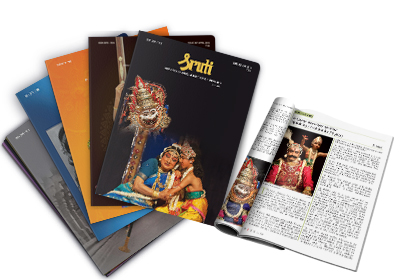
Akhtari Bai Faizabadi, or Begum Akhtar, as classical music connoisseurs know her, was an accomplished and renowned classical singer, who made it big in the world of classical music that was hitherto seen as a man’s domain.
She was born on October 7, 1914 in Bada Darwaza, Faizabad District of Uttar Pradesh.
Her father Asghar Hussain was a young lawyer who fell in love with Akhtari’s mother, Mushtaribai, a small time singer and took her as his second wife. Confined to the role of the ‘other family’, Akhtari and her twin sister, Zohra and their mother were in a few years disowned by the father leaving the family struggling to make a decent living.
By the age of seven she began to show a keen interest in music, getting first lessons from her mother and coming in contact with touring theatre groups. One such singer Chandra Bai captivated the imagination of young Akhtari, who could see for herself the possibilities of a singing career. Her first formal lessons in music came from Abdul Wahid Khan of the Kirana gharana and Barkhat Ali of the Patiala gharana. She also received intensive training under the great sarangi expert, Ustad Imdad Khan of Patna. Immersed in the various styles of these maestros, Akhtari soon became adept at singing dadras, ghazals and thumris.
In the early 1930s, Akhtari moved to Kolkata along with her mother and guru Ata Mohammad Khan of the Patiala gharana. At the age of 16, Akhtari had her first break of singing on the radio through the assistance of her benefactor, singer Jaddanbai. The peculiar charm of her voice gradually increased her singing assignments leading to her first recording with the Megaphone Record Company. Her first public performance to a stage audience came in 1934, at a concert for the relief of earthquake victims that the Nightingale of India, Sarojini Naidu, organised. The teenager received great appreciation from the renowned poet. The same year Akhtari made her debut in Hindi films like Mumtaz Begum, Roop Kumari and Ameena. Playback singing was unknown then and many actors of those days were more than adequate singers.
This was a very short-lived phase. From Kolkata Akhtari moved to the Nizam’s durbar in Hyderabad. The Nizam was a great patron of the arts and there was no dearth of musical performances or the presence of great singers at his court. Akhtari was fortunate to come into close contact with the greats; it helped her fine tune the art of singing ghazals and thumris.
Around this time, she received many offers to sing and act in Hindi films, her beauty and singing skills being twin advantages. However, she soon realized that the glamour of the film world did not sit well on her and she decided to move to Lucknow in 1943 to continue her classical singing. The Rampur durbar of Raza Ali Khan welcomed her. This was a turning point in her life.
It was in Lucknow, at the height of her musical career, that Akhtari met and married Barrister Ishtiaq Ahmed Abbasi. Following this, she took a break from music for nearly years. In 1948 she made an impressive comeback as Begum Akhtar with a splendid recital at the Lucknow radio station, becoming a trendsetter in the rendition of ghazals and thumris. She became a regular singer on All India Radio, composing most of her ghazals in raga based compositions. This was a new beginning for her and her inimitable style of singing gained richness and depth maturing with time.
She preferred to use Urdu lyrics for her ghazals, her favourite poets being Mirza Ghalib, Faiz Ahmad Faiz, Shakeel Badayuni and Kaifi Azmi. Her voice was deep and husky, with her nasal intonation giving her a rich timbre, and her ghazals and thumris were blended in the Purab and Punjabi styles with scope for improvisation. Her voice enthralled audiences even in regions where Urdu was not easily understood.
During her brief teaching career at the Bhatkande College of Music in Lucknow she trained many singers, notable among them Rita Ganguly, Shanti Hiranand and Vasundhara Pandit.
Begum Akhtar continued with her public concerts despite advancing age and ill health. In 1974, she performed at a concert in Ahmedabad, to accede to an old request from her fans.There, she fell ill because of the strain. She was hospitalized and the end came on October 30, 1974 silencing forever a voice that swayed the ghazal scene in India for over half a century.
Begum Akhtar has been the subject of many publications and research into her life and musical career. She received many accolades, the Padma Shri in 1968, the Sangeet Natak Akademi award in 1972 and the title of Mallika-e-Ghazal in her lifetime. The Government of India conferred on her the Padma Bhushan posthumously.


